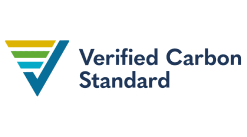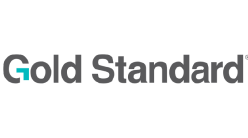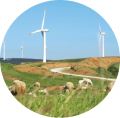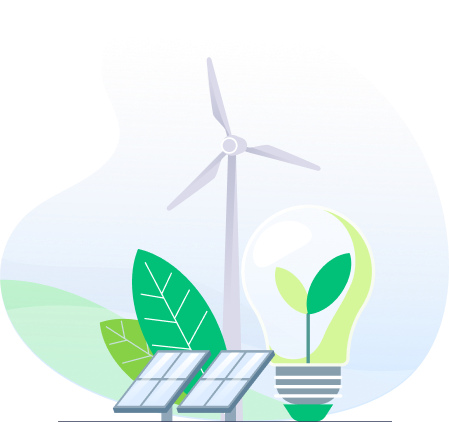Build a Green Future
by supporting Carbon Offset
Carbon Offset for Shipping
Certificate Details
The certificate will be sent to relevant e-mail address within 1-2 weeks. To preview the sample certificate, please click here .
Your request has been received.
We will contact you regarding the payment and certification process.
Offset Summary
cost per ton $33
Offsetting
1
ton of CO2 neutralizes the emission caused by:

4,280 kilometers of driving

30.00 kgs of beef consumption

3.00 m3 of melted glaciers

3,579 days of lightbulb usage

4,280 kilometers of driving

30.00 kgs of beef consumption

3.00 m3 of melted glaciers

3,579 days of lightbulb usage
What is a Carbon offset?
Carbon offset refers to the activities compensating for CO2 and greenhouse gas emissions and reducing the carbon footprint of individuals or organizations that are not carbon-neutral. A Carbon offset is a way to counteract your carbon footprint by contributing to sustainable projects.
What is a Carbon footprint?
A carbon footprint refers to the amount of CO2 or equivalent gas emissions individuals and organizations generate. Carbon footprints can be associated with your daily habits and products. These activities and products have a whole carbon journey. The journey of a burger you order goes all the way back to the sources used for the animal, the bread, and the vegetables.
Why Should You Carbon Offset?
Respect for Nature:
Our current biggest responsibility is to make our planet more livable and suitable for the next generations. In order to enhance living standards on earth, we must make carbon-offsetting an organizational and individual behavior.
Comply with International Standards:
With the increasing awareness of carbon offsetting all over the world, the importance of corporate companies to create strategies for environmental awareness has increased. Become a part of this with your institution.
Protect Your Future:
Recognizing our share in environmental risk factors is necessary to guarantee our future. It is in your hands to create awareness for your institution.
Become a Sustainable Company:
Make a difference to your stakeholders and customers by choosing a carbon offset project that fits you and demonstrating your commitment to sustainability.
Carbon Offset Projects
We display validated projects worldwide to encourage our users to support sustainability goals with concrete actions for our planet.
Within the scope of the project, approximately 8000 energy-efficient cookstoves were distributed to households in Zoba, located in the Anseba province of Eritrea.
The project aims to increase energy efficiency and reduce greenhouse gas emissions by popularizing improved cooking stoves.
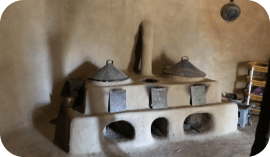
Verification
SUSTAINCERT
Class
Gold Standard
The project is classified as a micro-scale domestic energy efficiency project using the GS TPDDTEC v3.1 methodology. Increasing the use of fuel-efficient stoves will reduce emissions from the combustion of non-renewable resources.
This project is creating an economic buffer zone around a 573,299 hectare forest. The project helps local farmers with the transition to sustainable cocoa production, degraded land is being restored and deforestation pressures relieved. That is protecting the rainforest and provides people with a forest friendly and sustainable livelihood.
Tambopata-Bahuaja project has reduced global emissions by almost 4 million tonnes of CO2 to date — approximately equivalent to 482,000 homes’ energy use for a year. Through activities with local people, 352 jobs have been created or supported, 27% of those held by women.
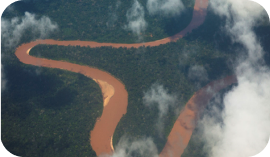
Verification
ICONTEC
Class
VCS
The project expects to avoid a net emission rate of 457 750,25 tCO2-e annually in comparison with baseline scenario projected during the first 10 years.
Bares II Wind Power Plant is classified as a large-scale project using the methodology of grid-connected electricity generation from renewable sources.
Located in Balıkesir province of Turkey with an installed power of 30 MW, the project scope includes 20 units of GE1,5SE wind power turbines. Completed in June 2006, the wind power plant generates 109.9 GWh of electricity and reduces 71.710 tCO2e emissions from the atmosphere per year.
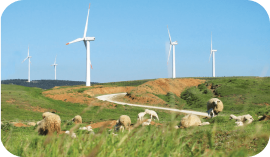
Verification
RINA Services S.p.A
Class
Gold Standard
The project’s main objective is to produce electricity from renewable energy, and contribute to a low-carbon economy.
Biofilica Environmental Investments, in collaboration with Sipasa-Seringa and Maisa-Moju Agroindustrial, developed the Maisa REDD+ Project to reduce emissions from deforestation and degradation.
The project’s main objectives are sustainable forest management and conservation with low-impact logging techniques and small-scale agriculture. The estimated annual emission reduction of the project is 67,458.1 tCO2eq.
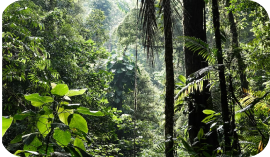
Verification
IMAFLORA/Rainforest Alliance
Class
VCS
The project is classified as a large-scale forest conversion project using the Methodology for Avoided Unplanned Deforestation (AUD).
Verification of the Carbon Offset
All listed carbon offset projects have been verified and approved by the following standards:
